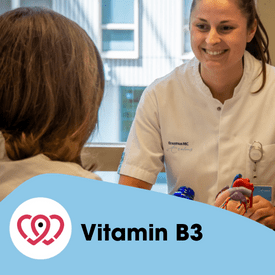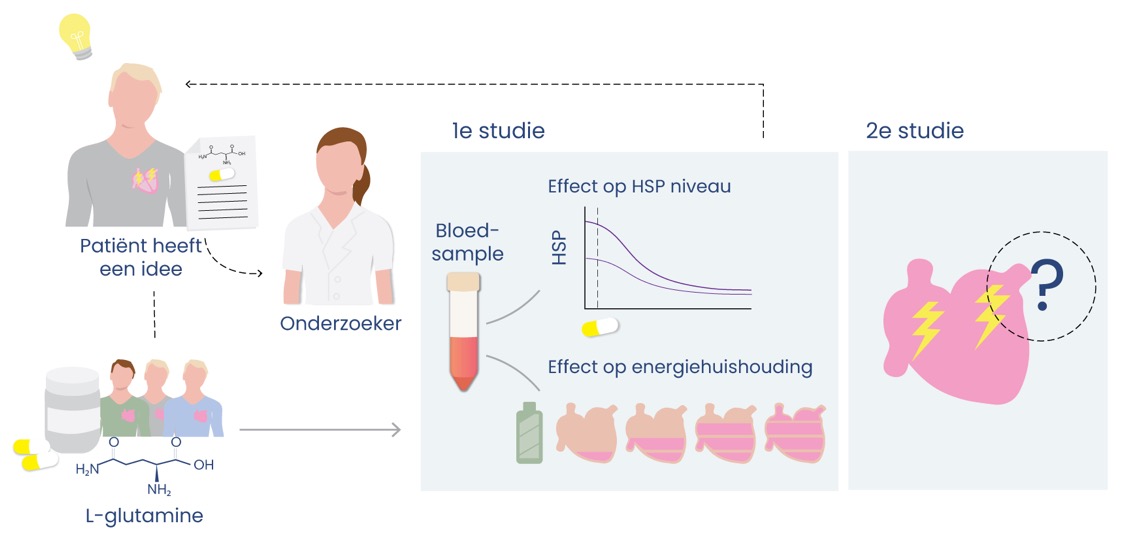
Afib Medicine
Last update February 1, 2024
Treating atrial fibrillation with antiarrhythmic drugs
Cardiac arrhythmias, such as atrial fibrillation, can be treated with medication, so called antiarrhythmic drugs. They aim that atrial fibrillation occurs less often, is less intense, or even stops completely. During the treatment, you will remain under strict supervision so that you, together with a healthcare professional, find the ideal medication. We will tell you about the possibilities and effects of medications for atrial fibrillation.
What Are Antiarrhythmic Drugs?
Antiarrhythmics are pharmaceutical drugs for the treatment of heart rhythm disorders, including atrial fibrillation. The medications affect the formation of electrical impulses and/or conduction in the heart. The final goal?
- Preventing a heart rhythm disorder
- Controlling a cardiac arrhythmia
Stopping the cardiac arrhythmia altogether
How do Afib medications work?
Your physician will look at the primary goal of the medication when choosing an antiarrhythmic drug. Do you aim to prevent, control, or possibly completely get rid of the heart rhythm disorder? Other medically relevant issues, such as a previous heart attack, also are taken into account when making treatment plans.
Your doctor will monitor your health and possible side effects during your treatment with antiarrhythmic medications. This is important because the effectiveness and side effects must be carefully measured with blood tests and electrocardiogram (ECGs). Your doctor might sometimes try several medications and it might take a while to find a medication (and dosage) that works best and that has the fewest side effects.
Antiarrhythmic drugs for rhythm control
With rhythm control, you aim to restore and maintain a regular heart rhythm. This reduces attacks or even prevents atrial fibrillation altogether. Antiarrhythmics commonly used for rhythm control include flecainide, verapamil, sotalol, and amiodarone.
Drugs for heart rate control
If it is not possible to control the heart rhythm with anti-arrhythmic drugs, your treating physician may decide that treating other symptoms might be the best solution for you. In this case, the aim is then no longer to achieve a normal heart rhythm but to slow down the heart rate. Your doctor might prescribe drugs to lower your heart rate instead and thus reduce the number of beats per minute.
Beta blockers (metoprolol) and calcium channel blockers are the drugs of choice because they rapidly lower heart rate.
In which cases can a doctor opt for heart rate control?
- If restoration of a normal heart rhythm is not successful
- If recovering a normal rhythm is not likely due to underlying heart and/or vascular conditions
- If atrial fibrillation has been present for a long time
Are antiarrhythmic drugs effective for treating Afib?
Unfortunately, antiarrhythmic medications are only moderately effective in treating atrial fibrillation. Patients can also experience unpleasant side effects such as ventricular arrhythmia, a slow heart rate, depression, severe nightmares, as well as cold hands and feet.
Ablation therapy may be more effective in the long term. Curious about the positive effects of this treatment? You can read everything about ablation therapy and atrial fibrillation on our page. Read more about ablation therapy.
References
- Hindricks, G., Potpara, T., Putte, B. P. v., Kirchhof, P., Kühne, M., Aboyans, V., … & Закиров, Н. У. (2020). 2020 esc guidelines for the diagnosis and management of atrial fibrillation developed in collaboration with the european association for cardio-thoracic surgery (eacts). European Heart Journal, 42(5), 373-498. https://doi.org/10.1093/eurheartj/ehaa612
Share this article
















